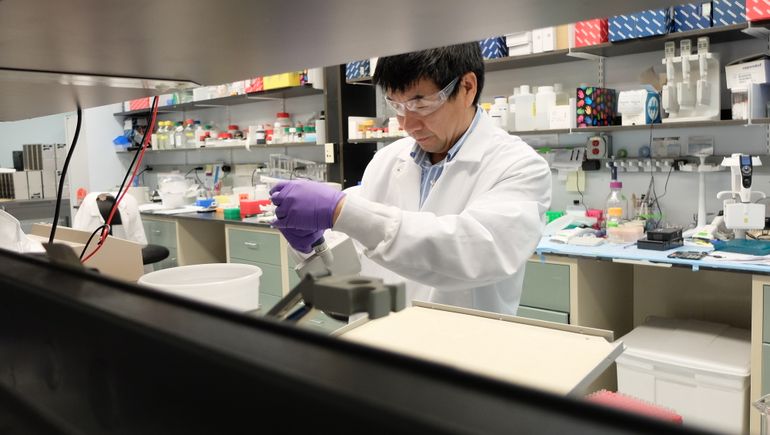Cardiovascular
Roche buys into Alnylam heart drug in cardiovascular research bet
Roche will partner with Alnylam Pharmaceuticals to study a promising new treatment for high blood pressure, becoming the latest large drugmaker to commit in a big way to the often lengthy and expensive process of developing new medicines for the heart.
Through a deal announced Monday, Roche will pay Alnylam more than $300 million upfront to share rights to the experimental treatment, called zilebesiran. The Swiss pharmaceutical company will also fund the majority of the costs for a large clinical trial to test whether zilebesiran can lower the risk of dangerous cardiovascular events like heart attacks and strokes.
“With this collaboration, we now can develop zilebesiran in a more robust way, allowing us to have cardiovascular outcomes data in hand at launch to ensure results relevant not only for health authorities but also for access and clinical practice in order to ultimately reach as many patients as possible,” Alnylam CEO Yvonne Greenstreet said in a statement.
Alnylam, which specializes in medicines that target RNA rather than proteins, has been studying zilbesiran in people with mild or moderate hypertension. Two Phase 2 studies are currently ongoing, with initial data expected in “mid-2023” for the first and early next year for the second.
While Alnylam has successfully brought four drugs to market on its own, they all treat rare diseases that affect between a few thousand to tens of thousands of people. Hypertension is estimated to affect more than 1 billion people globally, and would require a far larger commercial infrastructure to support an approved drug.
Roche, with its global reach, can more easily provide that kind of marketing muscle. The company’s medical devices arm sells several cardiac tests for diagnosing heart failure, for instance.
Alnylam has made a similar calculation in the past, licensing a cholesterol drug to The Medicines Company that is now sold by Novartis as Leqvio.
The biotech will retain rights to co-commercialize and share profits on zilbesiran in the U.S., while granting Roche an exclusive license to the medicine outside of the country. Alnylam could receive additional payments if certain development, regulatory and sales milestones are met. All told, the deal could be worth as much as $2.8 billion, the companies said.
Paul Matteis, an analyst at the investment bank Stifel, described the deal terms as “solid, but not earth-shattering” in a note to clients, which he attributed the costs of development and the U.S. rights Anylam held onto.
“To some, explicit plans for a [cardiovascular outcomes study] pre-approval might be disappointing as it means zilebesiran probably won’t be on the market until the late 2020s,” Matteis wrote. “However, for maximizing the value of the asset, this strategy makes sense.”
Outcomes studies typically involve thousands of participants and need to run for many years to determine whether a drug like zilebesiran reduces heart risk. While those factors make them especially expensive, the data they deliver, if positive, are viewed as essential for convincing doctors to prescribe a new medicine and for insurers to cover it widely.
In a presentation Monday, Alnylam indicated the outcomes trial for zilebesiran would likely enroll people with hypertension that remains uncontrolled despite other treatment and who are at high cardiovascular risk.
Roche’s investment in zilebesiran stands apart from its usual areas of research but comes as more pharma companies, after years of prioritizing cancer and immune disease medicines, recommit to the heart. Novartis bought The Medicines Company to gain access to Leqvio, while Bristol Myers Squibb bought the biotech Myokardia for a heart failure treatment now approved as Camzyos.
Amgen, which has struggled to sell a high cholesterol therapy called Repatha, is investing heavily in a drug that could offer a new way to lower heart risk. Merck & Co., meanwhile, is touting a return to cardiovascular drug research as it plans beyond the late-decade expiration of patents protecting its cancer drug blockbuster Keytruda.

